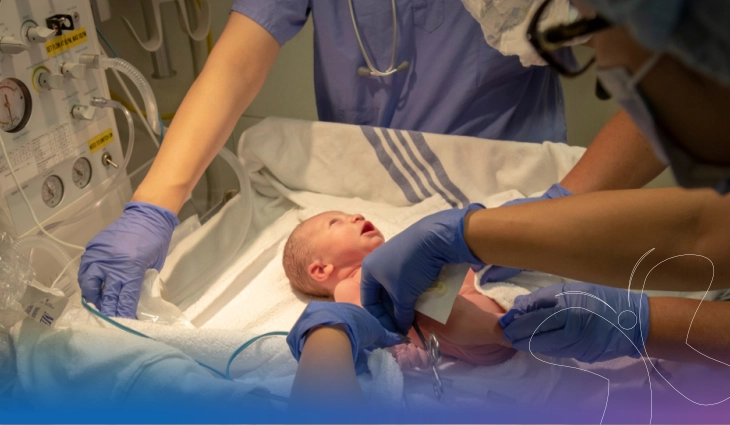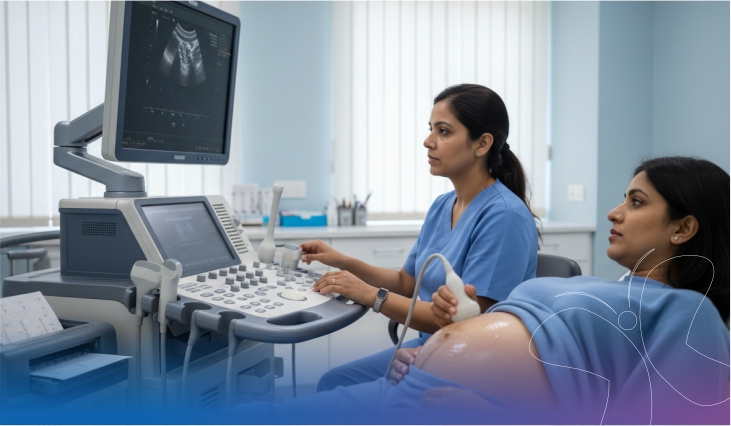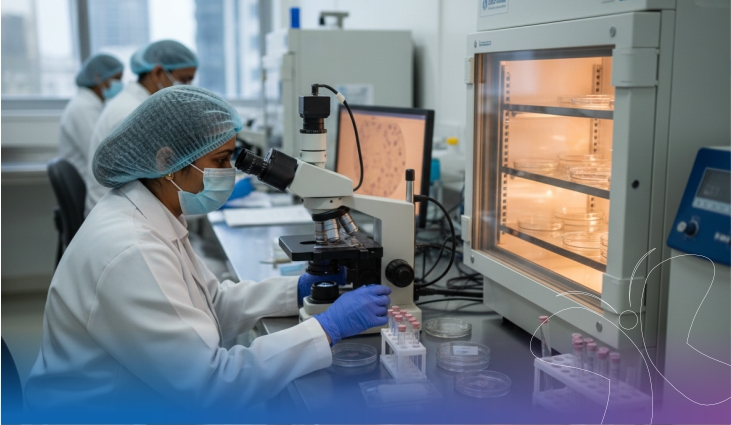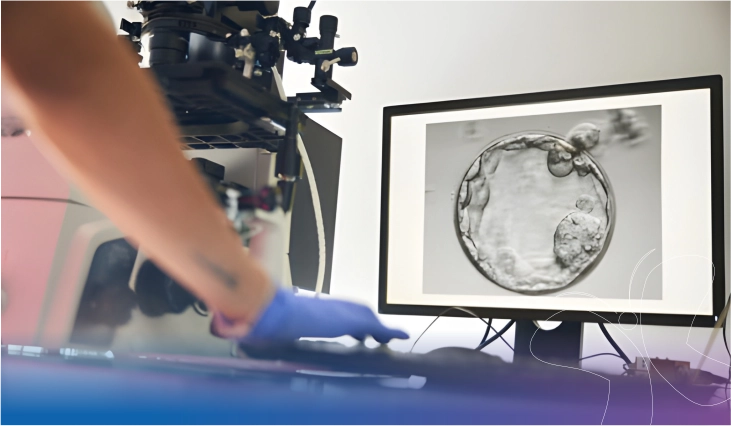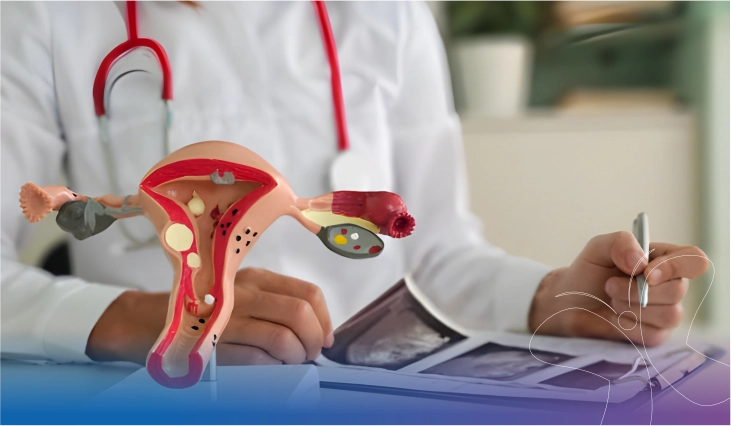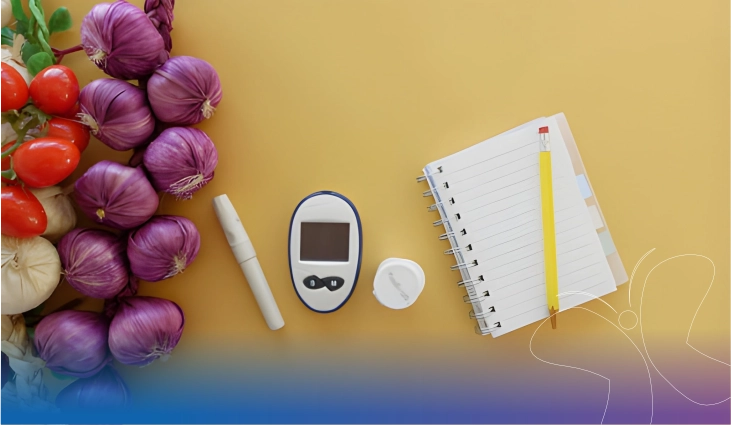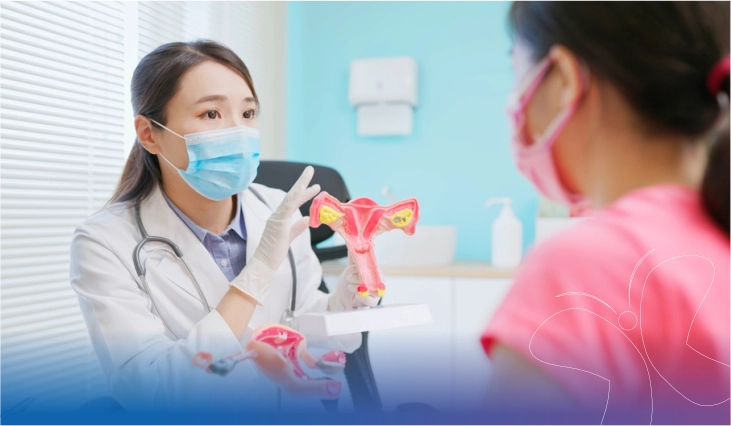You’ve taken your pregnancy test, booked your first scan, and started folic acid. But has anyone tested your thyroid levels?
At Flowrence, we routinely screen thyroid function in the first trimester and in many cases, it’s the first time a woman finds out she has a thyroid imbalance.
Left untreated, it can impact the baby’s growth, brain development, and even lead to miscarriage or premature delivery. That’s why we say: your thyroid deserves as much attention as your baby bump.
What does the thyroid do?
The thyroid is a small gland in your neck that produces hormones to regulate your metabolism how your body uses energy.
During pregnancy, your thyroid needs to work harder to support both you and the growing baby.
If it doesn’t, it leads to one of two problems:
- Hypothyroidism – underactive thyroid (more common)
- Hyperthyroidism – overactive thyroid (less common)
Both can affect your pregnancy if not managed early.
Why is this so important during pregnancy?
The baby’s brain and nervous system start developing within the first 6 weeks and until 12 weeks, your baby relies entirely on your thyroid hormones.
Low levels of these hormones can lead to:
- Delayed brain development
- Low birth weight
- Increased risk of stillbirth or miscarriage
- Elevated blood pressure in the mother
- Preterm labour
That’s why our top gynecologist in Rajkot always includes thyroid testing in the first antenatal blood work panel no matter the mother’s past history.
Signs you might miss
Many symptoms of thyroid problems overlap with pregnancy. That’s what makes detection tricky without testing.
What to watch for:
If underactive (hypothyroid):
- Unusual fatigue
- Dry skin
- Hair thinning
- Weight gain beyond expected
- Feeling cold despite the weather
If overactive (hyperthyroid):
- Unexplained weight loss
- Rapid heartbeat
- Heat intolerance
- Excessive anxiety or irritability
- Muscle weakness
These symptoms should be discussed with your doctor in Rajkot early especially if they’re intense or out of pattern.
What’s the treatment?
Most thyroid issues in pregnancy are managed with medication usually levothyroxine for hypothyroidism. The dose is tailored based on regular blood tests (TSH and Free T4), which we monitor every 4–6 weeks.
Hyperthyroidism may require anti-thyroid medications, but is less common and closely monitored by a physician. The key is to treat early, monitor regularly, and adjust as needed.
What else can help?
- Take your thyroid medicine on an empty stomach, ideally 30 minutes before food
- Don’t take iron or calcium supplements at the same time they interfere with absorption
- Eat a balanced diet rich in iodine, selenium, and zinc (under medical guidance)
- Stay consistent with follow-ups every trimester counts
At our pregnancy care hospital in Rajkot, we track thyroid levels through all stages of pregnancy not just once. Because hormones change, and so do your body’s needs.
Final Word
Thyroid problems are common. They’re manageable. But they’re also easy to miss if not tested early.
Don’t let something so important go unchecked. One simple blood test could make all the difference.








